La Bamba
La Bamba
La Bamba is the story of 1950s rock 'n' roll rage Ritchie Valens, played herein with gusto and credibility by Lou Diamond Phillips. The film follows 17-year-old Ritchie as he strolls from one end of his California barrio to the other, guitar in hand. We meet Ritchie's colorful Mexican/American family, who react to his fame with varying degrees of pride and envy. And we meet the ladies in his life: his ambitious mother Connie Valenzuela (Rosana De Soto), his half-sister Rosie Morales (Elizabeth Pena), and blonde classmate Donna Ludwig (Danielle von Zerneck), who inspired Ritchie's first hit "Donna." Both this song and "La Bamba" are given con brio interpretations by Lou Diamond Philips and by the contemporary group Los Lobos, who appear in the film as the Tijuana band. The tragic coda of La Bamba is not unduly emphasized; this is a celebration of Ritchie Valens' life, not a eulogy.
La Bamba
"La Bamba" is a classic example of the son jarocho musical style, which originated in the Mexican state of Veracruz. The song also refers to a specific incident which occurred in the year 1683, in Veracruz, when pirates attacked the people, free and enslaved, living there. The Spanish officials mistreated the enslaves so horribly that they rebelled in what was known as the 'Bambarria', an enslave uprising that pitted the African enslaves and Indians against the Spanish.
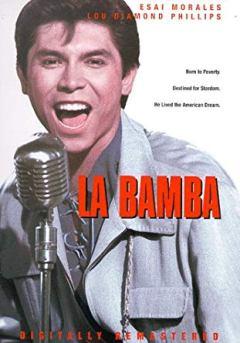
La Bamba, 1987, poster
Most people never thought of “La Bamba” with an African/Black connection, but, it does have an African origin, and the song owes its creation to enslaved Africans. The song was originally a song sung by African slaves in Veracruz as they worked, since many of the enslaves brought to Mexico by the Spaniards, came from Angola and Congo, with the Africans who originated the song hailing from the MBamba peoples of Angola. Bamba is the name of an African tribe in Angola and in Congo, from the Bamba River. As enslaves, the MBamba peoples brought their beautiful culture with them, and the original origins of this song, over 500 years ago, and as so very often, with enslaved Africans in the new world, they fought against enslavement, running away and joining up with the indigenous peoples in the rain forests and mountainous areas.
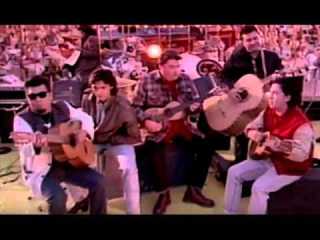
Los Lobos sing La Bamba, 1987
Influenced by Afro-Mexican and Spanish flamenco rhythms, the song uses the violin, jaranas, guitar, and harp. Lyrics to the song vary greatly, as performers often improvise verses while performing. However, versions such as those by musical groups Mariachi Vargas de Tecalitlan and Los Pregoneros del Puerto have survived because of the artists' popularity. The traditional aspect of "La Bamba" lies in the tune, which remains almost the same through most versions.
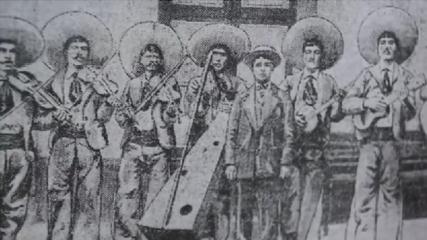
El Mariachi
The song and dance was traditionally performed at weddings and in general it's thought to be a "love" dance. The bride and groom (or couple dancing it) perform intricate steps. The line 'arriba' (up) is most likely referring to the steps in which the knee is slightly lifted. Towards the end of the song they dance back and forth over a long red ribbon called a listón. At the very end, they tie the long ribbon into a love knot (a bow) using only their feet. Then they hold up their perfect bow to show everyone. It's a really beautiful dance.
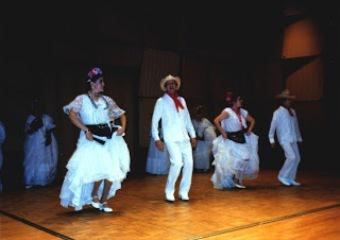
La Bamba dance - Arriba
The most famous version worldwide is the one sung by Ritchie Valens in 1958. Valens was born Richard Valenzuela in Pacoima, California to Mexican-Indian parents. He didn't speak fluent Spanish, but could understand his mother and speak a fair Spanglish. Valens obtained the lyrics from his aunt Ernestine Reyes and learned the Spanish lyrics phonetically, as he had been raised from birth speaking English.
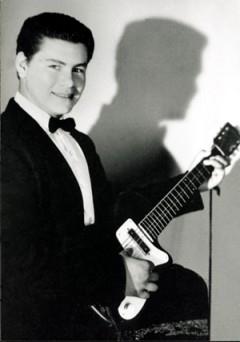
Ritchie Valens
Valens' "La Bamba" infused the traditional tune with a rock beat, making the song accessible to the population of the United States and earning it (and Valens) a place in rock history. The song features simple verse-chorus form. Valens' version was originally the B side to his first hit, "Donna." "La Bamba" entered the Top 40 two weeks before the 17-yearold died in the same plane crash that killed Buddy Holly and the Big Bopper.
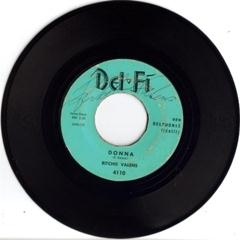
Donna/La Bamba, 1958
This song was only a modest hit when it was released in November 1958, but it became far more popular when the Ritchie Valens biopic La Bamba was released in 1987. The movie was a big deal because it was the first major, mainstream Hollywood film with a Hispanic subject. The movie was released in the United States in both Spanish and English versions, and Coca-Cola did a marketing tie-in targeting the Hispanic population in America - a population that would grow considerably in size and influence over the next several years.
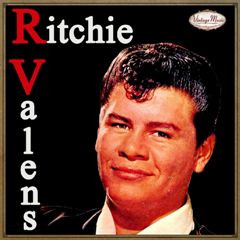
Ritchie Valens
The Los Lobos version was the title track of the film La Bamba and reached No. 1 in the U.S. and UK singles charts in the same year and remained No. 1 for three weeks in the summer of 1987. Valens' version of La Bamba is ranked number 345 on Rolling Stone magazine's list of the 500 Greatest Songs of All Time. It is the only song on the list not sung in English. Ritchie Valens' tapping into a Mexican folk song unwittingly paved the way for “Twist and Shout” and all the other songs based on it since 1962.
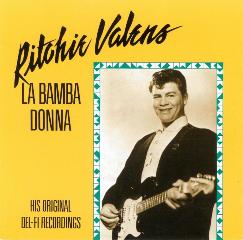
Ritchie Valens - La Bamba, 1987
La Bamba by Ritchie Valens
Para bailar La Bamba Para bailar La Bamba se necesita una poca de gracia Una poca de gracia Pa' mi, pa' ti, ay arriba, ay arriba Ay, arriba arriba Por ti seré, por ti seré, por ti seré Yo no soy marinero Yo no soy marinero, soy capitán Soy capitán, soy capitán Bamba, bamba Bamba, bamba Bamba, bamba, bam Para bailar La Bamba Para bailar La Bamba Se necesita una poca de gracia Una poca de gracia Para mi, para ti, ay arriba, ay arriba Para bailar La Bamba Para bailar La Bamba Se necesita una poca de gracia Una poca de gracia Pa' mi, pa' ti, ay arriba, ay arriba Ay, arriba arriba Por ti seré, por ti seré, por ti seré Bamba, bamba Bamba, bamba Bamba, bamba
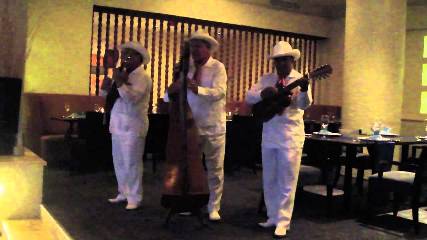
Los Pregoneros del Puerto sing La Bamba
English translation
To dance the Bamba, to dance the Bamba, one needs a bit of grace. A bit of grace for me, for you, now come on, come on, now come on, come on, for you I'll be, for you I'll be, for you I'll be. I'm not a sailor, I'm not a sailor, I'm a captain. I'm a captain, I'm a captain. Bamba, bamba, bamba, bamba, bamba, bamba, bam... To dance the Bamba, to dance the Bamba, one needs a bit of grace. A bit of grace for me, for you, now come on, come on. Rrrraa-ha-haa... To dance the Bamba, to dance the Bamba, one needs a bit of grace. A bit of grace for me, for you, now come on, come on, now come on, come on, for you I'll be, for you I'll be, for you I'll be. Bamba, bamba, bamba, bamba, bamba, bamba...
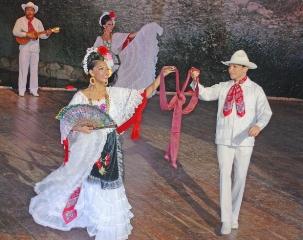
La Bamba dance - final
Tlen Huicani - La Bamba (Son Jarocho)
Last Updated (Monday, 02 July 2018 21:17)








